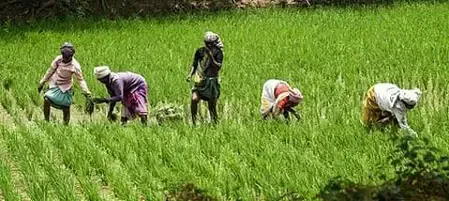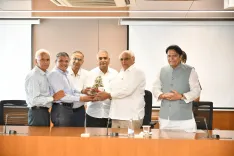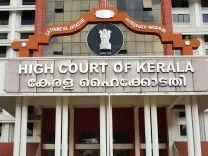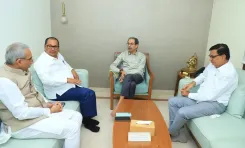Will TN Delta Farmers Get Their Tripartite Meeting to Discuss Paddy Procurement?

Synopsis
Key Takeaways
- Tamil Nadu farmers are calling for a return to tripartite meetings to address procurement issues.
- The shift from 40 kg to 50 kg bags is a significant demand to reduce corruption.
- Farmers report high bribes and deductions affecting their income.
- Other commodities are procured in larger bags, highlighting inconsistencies.
- Government response is awaited as the current Kharif Marketing Season progresses.
Chennai, Sep 8 (NationPress) Farmers from the Delta region of Tamil Nadu have once again urged the state government to organize a tripartite meeting aimed at reviewing paddy procurement policies—an essential process that has been neglected for the past two years.
According to the farmers, such a gathering would provide them the opportunity to express their worries and advocate for overdue reforms in procurement practices. A major request is to transition from the current 40 kg bags to 50 kg bags for paddy procurement during this year’s Kharif Marketing Season (KMS).
They contend that utilizing 50 kg bags would minimize deductions and instances of corruption, thereby alleviating the financial strain on cultivators.
“While other commodities such as sesame, cotton, black gram, green gram, maize, ragi, pepper, and various grains are procured in 100 kg bags, paddy is uniquely confined to 40 kg bags. This discrepancy not only facilitates irregularities but also coerces us into paying bribes and enduring unnecessary deductions,” stated Swamimalai Sundara Vimalanathan, Secretary of the Tamil Nadu Farmers Protection Association.
He revealed that farmers are often forced to pay bribes of up to Rs 60 per 40 kg bag, in addition to losing two kilograms of paddy per bag due to deductions. Farmers also noted that other government departments, like the Agriculture Marketing and Agri Business Department, procure paddy in larger 75 kg bags, while fertilizers and multi-grains are managed in 50 kg bags.
Conversely, the Tamil Nadu Civil Supplies Corporation (TNCSC) continues to depend on the smaller 40 kg bags, placing cultivators at a disadvantage. The traditional tripartite meeting, which used to take place before procurement commenced, included officials, elected representatives, and farmers, offering cultivators a chance to impact policy decisions.
Farmers now assert that the government's reluctance to organize these meetings has deprived them of a formal avenue to voice their grievances.
“For years, we have been advocating for procurement in 50 kg bags. This change would diminish the volume of deductions and foster fairness in the system. Without these reforms, farmers are left at a disadvantage,” Vimalnathan emphasized.
As procurement for the current season is in progress, farmers remain hopeful that the government will respond favorably to their demands, revive the tripartite meeting system, and take necessary actions to address their issues.








